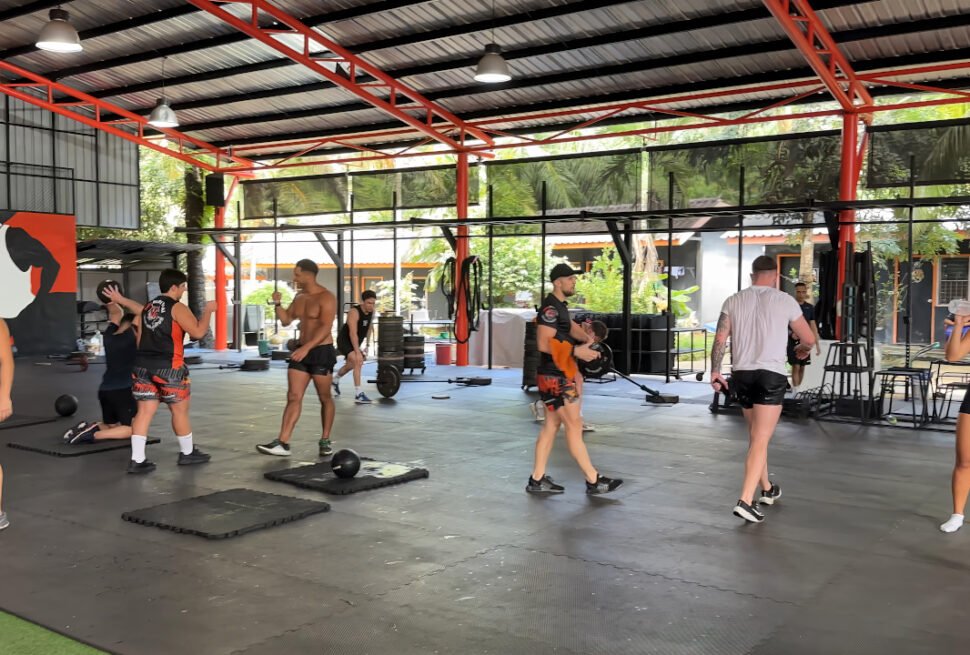Ever wished you could just hit pause on life and focus entirely on your health? That’s the basic idea behind a fitness retreat. It’s like a vacation, but instead of sightseeing, you’re working on becoming the best version of yourself. You’ll find fitness retreats designed with different goals in mind – weight loss, muscle gain, stress reduction, or just building a healthier lifestyle. But they all have a few things in common: they provide a structured program, away from the distractions of everyday life, where you can exercise, eat well, and learn about wellness.
So, why are these retreats so popular? Well, for starters, they offer a chance to truly dedicate time to yourself. No work deadlines, no chores, no family commitments – just pure focus on your well-being. Plus, you’ve got experts guiding you every step of the way, from trainers who push you in workouts to nutritionists who help you make smart food choices. This kind of structured environment and support can be incredibly motivating, especially when you’re surrounded by other people who share your goals. And the best part? Many people see real, noticeable changes in their health and fitness in a short amount of time. It’s like a jumpstart to a healthier you.
The Challenge of Maintaining Momentum
It’s no secret that fitness retreats can work wonders. You come home feeling amazing – energized, motivated, and lighter, both physically and mentally. But then, real life kicks back in. Work piles up, the kids need your attention, and suddenly that daily yoga routine seems impossible to squeeze in. Before you know it, you’re back to grabbing takeout on the way home from work and skipping workouts.
Why is it so hard to keep up the good habits you formed at the retreat? Well, it’s a combination of things.
- Structure (or lack thereof): Retreats provide a clear schedule and built-in accountability. At home, it’s up to you to create that structure, and it’s easy to let things slide.
- Temptation overload: Let’s face it, your home environment probably isn’t set up to support your new healthy lifestyle. The fridge is stocked with your family’s favorite snacks (not necessarily the healthy kind), and the couch is calling your name after a long day.
- Motivation fades: The initial excitement and support you felt at the retreat can start to wear off when you’re back in your everyday routine.
- Missing your support system: The camaraderie and shared goals you experienced with other retreat participants can be a powerful motivator. Back home, you might feel like you’re going it alone.
It’s totally normal to experience this post-retreat slump. But don’t worry, it doesn’t mean you’ve failed! With the right strategies, you can absolutely maintain those healthy habits and keep the positive momentum going.
Strategies for Continued Success
Coming home from a fitness retreat can feel like stepping off a speeding train. It’s tempting to try and maintain that same level of intensity, but trust me, easing back into your routine is key. Going from zero to one hundred too quickly is a recipe for burnout.
Here’s the thing: making lasting changes is a marathon, not a sprint. So how do you keep that healthy momentum going?
1. Start with small, achievable goals. Instead of vowing to hit the gym every single day, aim for three or four workouts a week. Focus on making healthy food choices most of the time, rather than striving for perfection. Small wins build confidence and keep you moving forward.
2. Plan ahead. Remember that structured schedule you had at the retreat? Create your own version at home. Carve out time for workouts, plan your meals for the week, and even schedule some downtime for relaxation. Having a routine makes it much easier to stick to your goals.
3. Ditch the diet mentality. Retreats often introduce you to new ways of eating, but restrictive diets are rarely sustainable in the long run. Focus on building a balanced relationship with food. Plan your meals and snacks in advance so you’re less likely to make impulsive choices when hunger strikes.
4. Find your tribe. Connecting with people who share your health goals can make a huge difference. Talk to friends and family about your experience at the retreat and the changes you’re trying to make. Join an online community or find a local group where you can share tips, encouragement, and maybe even a workout buddy.
5. Consider working with a health coach. Think of it like having a personal trainer and cheerleader rolled into one. A good coach will help you set realistic goals, create a personalized plan, and provide the support and accountability you need to stay on track. When looking for a coach, do your research. Look for someone with the right qualifications and experience, but also consider their approach and whether their personality is a good fit for you.
6. Check in with yourself regularly. Life is constantly changing, and your goals and strategies might need to change too. Take some time every few weeks to reflect on your progress, celebrate your successes, and make adjustments as needed.
Remember, this is about creating a lifestyle that works for you – one that you can sustain long after the retreat is over.
Sustaining Motivation
Okay, you’ve made it home, and you’re ready to keep this healthy train rolling. But how do you stay motivated for the long haul? Here’s the secret: it’s got to be enjoyable and sustainable.
1. Find your fitness groove. If you hate running, don’t force yourself to run! Explore different activities until you find something you genuinely like. Maybe it’s dancing, swimming, hiking, or kickboxing or try out some new workout types check out 5×5 Energy System, which is fun innovative workout system and the best part you can do it anywhere and it only takes 40 minutes a day. The more you enjoy your workouts, the more likely you are to stick with them.
2. Mix it up! Doing the same thing day in and day out can get boring fast. Keep things interesting by trying new workouts, adding variety to your routine, or setting new challenges for yourself. Sign up for a race, learn a new sport, or try a fitness class you’ve never done before.
3. Celebrate all victories, big and small. Remember, healthy living is about more than just the number on the scale. Pay attention to how much better you feel – increased energy, improved mood, better sleep. These “non-scale victories” are huge motivators and proof that you’re making progress.
4. Don’t forget to take care of your mental health. Stress can sabotage even the best intentions. Make time for activities that help you relax and recharge, like meditation, yoga, spending time in nature, or listening to music. Taking care of your mind is just as important as taking care of your body.
The bottom line. This is your journey. Find what works for you, make it fun, and celebrate every step of the way. You’ve got this!
Fitness retreats can be an amazing way to kickstart a healthier lifestyle. But the real magic happens when you take those healthy habits and weave them into your everyday life. It takes effort, no doubt, but it’s absolutely possible.
Remember those incredible feelings you had at the retreat? The energy, the confidence, the sense of accomplishment? You can keep those feelings alive. By making gradual changes, setting realistic goals, and prioritizing your well-being, you can create a life you love – a life filled with vitality, joy, and a deep sense of self-care.
This isn’t about perfection; it’s about progress. There will be days when you nail it and days when you don’t. That’s okay. The important thing is to keep moving forward, one healthy choice at a time. You have the tools, the knowledge, and the inner strength to make it happen. Now go out there and shine!
Adrenaline junkie with a passion for exploring off-the-beaten-path destinations and finding unique ways to stay active. Expect stunning scenery, challenging workouts, awesome travel tips and a whole lot of fun. Let’s get sweaty and explore the world together!




